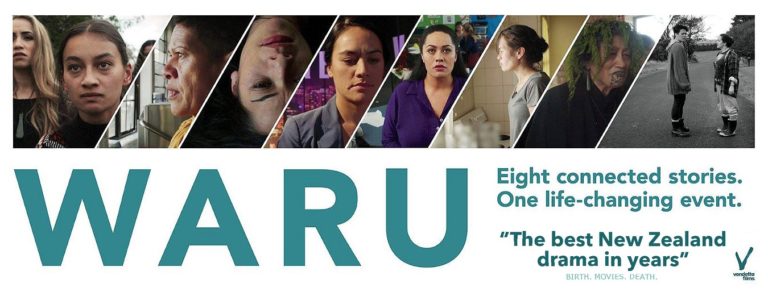
It was a pleasure to be invited to speak at the 2019 Chester International Film Festival hosted at the impressive Storyhouse arts venue, and it was a particular honour to be able to introduce important examples of contemporary Aotearoa New Zealand cinema.
The opening film was the imaginative and beautifully animated short Trap. It focuses on a young, adopted, girl struggling to adapt to her new home, and captures the sense of entrapment felt by all the characters. A nice little twist offers them all a release.
The main feature, Waru, a realist portmanteau drama directed by eight women, takes the death of the titular child, Waru (Maori for eight), as its central subject. According to the producers, Kerry Warkia and Keil McNaughton, they also issued an additional challenge to their filmmakers: each segment must have a female Maori lead and had to be shot in one, single 10-minute take.
The result is powerful, thought-provoking and uncompromising. The intimacy of the single-shot segments as they follow eight different women in the aftermath of the tragedy draws the audience into a very private world of grief, anger, culpability, hopelessness and pain. Each of the stories takes a different perspective, but all have a refreshingly matter-of-fact approach that does not shy away from the drama of real life and the impact of bereavement.
I was particularly struck by two of the stories. Casey Kaa’s segment feature’s Waru’s teacher, Anahera (Roimata Fox), and is skilfully infused with tension and an overwhelming sense of guilt. It opens with a poignant conversation between the teacher and some of the young pupils as one of them tries to reserve a seat for Waru. Anahera, grappling with her own accountability, is overcome by the situation and leaves the classroom. Her life is further complicated by an affair she is having with one of the other staff. A fumbled encounter in a small bathroom signals that she is seeking some physical relief but cannot escape her shame for having done nothing to save the child.
Chelsea Cohen’s section jolts the viewer from the realist domestic settings and the tangi (funeral) to a bright, modern television studio. It highlights the challenges faced by presenter, Kiritapu (Maria Walker), who is confronted by casual racism from the make-up department who don’t have an appropriate foundation for her skin tone, to overt discrimination from the obnoxious ‘star’ anchor-man, Mike (Jonny Brugh). Kiritapu‘s on-air outburst against Mike’s dismissal of the child’s death a ‘Maori problem’, is an unambiguous challenge to everyone to take responsibility. The safety of children is all our responsibility and is not something that belongs to one community.
The film does not provide a neat and coherent narrative, but the fragmented style adds to its impact. We are left wanting to know ‘what happens next?’. Producer Warkia has noted that it was a project “born out of heartache, love and passion to protect our children”, but, significantly, “it was created with a desire to challenge perceptions and to start conversations.” It certainly succeeds.
Dr Andrea Wright, Senior Lecturer in Film Studies and Senior SOLSTICE Fellowship Lead at Edge Hill University.
The Chester International Film Festival
09-20 March 2019, at Storyhouse, Chester
Curated by the I4P Director, Prof Jo Crotty, the annual Chester International Film Festival offers a remarkable selection of films that share stories and experiences from around the world. Three of this year’s films will be introduced by EHU academics, Prof Owen Evans (Mug), Prof Claire Parkinson (Dogman) and Dr Andrea Wright (Waru). #CIFF19
